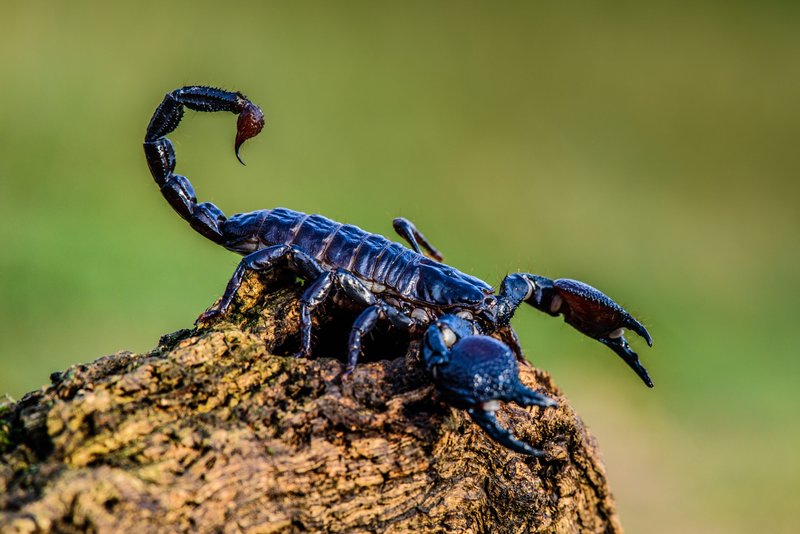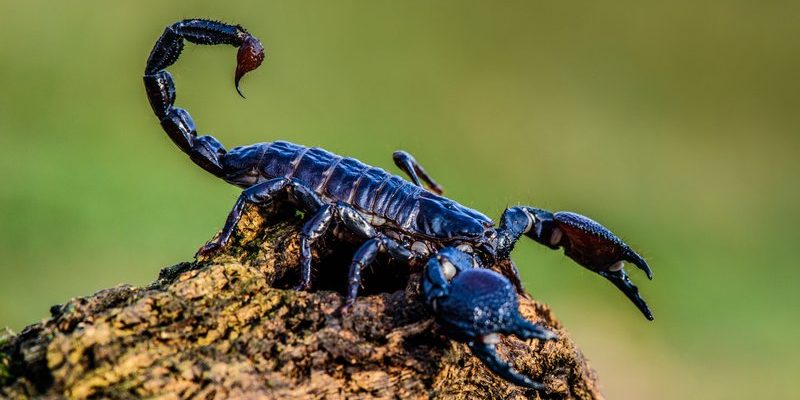
Let’s dig into what makes the Emperor Scorpion unique, focusing on its venom, behavior, and whether it poses a real threat to humans. Think of it like peeling back the layers of an onion. Each layer reveals a little more about this captivating creature, helping you understand its nature and your safety around it.
Understanding the Emperor Scorpion
The Emperor Scorpion, scientifically known as *Pandinus imperator*, is one of the largest scorpion species in the world, often reaching lengths of up to 8 inches. They are typically found in the rainforests and savannas of Africa, where their glossy black bodies blend into the dark soil and shadowy crevices.
You might spot them in the pet trade due to their striking appearance and relatively docile nature. Unlike the menacing image that many scorpions portray, these guys are often kept as exotic pets. But just because they’re popular doesn’t mean you should underestimate them! They have their own specific needs and can live for several years in captivity, often becoming a fascinating addition to a collector’s home.
Physical Characteristics
Emperor Scorpions are impressive not just due to their size but also their features. With large pincers that look like they belong in a superhero movie, they can deliver a formidable pinch. However, their main weapon is their stinging tail, which they use to defend themselves against predators.
Interestingly, while they might look intimidating, these scorpions have a *shiny appearance* that can sometimes catch the light in a way that’s quite beautiful. If you ever watch them in action, you’ll see them move with a graceful elegance that contrasts sharply with the fear they often instill.
Is the Emperor Scorpion Poisonous?
Now, let’s get to the crux of the issue—*is the Emperor Scorpion poisonous?* The short answer is no, not in the way you might think. Their venom is mild compared to that of other scorpion species. While they can sting, their venom is not lethal to humans. Most people describe the pain from an Emperor Scorpion sting as similar to a bee sting, which is manageable and usually subsides quickly.
However, don’t let this fool you into thinking they’re harmless. Just like you wouldn’t poke a bear just because it’s not lethal, it’s essential to treat these creatures with respect. A sting can still cause swelling, redness, or even an allergic reaction in some individuals—so it’s always wise to practice caution.
What Does Their Venom Do?
Emperor Scorpions use their venom to immobilize prey, which mainly consists of insects and other small creatures. When they sting, the venom can cause paralysis, making it easier for them to devour their meal. In this sense, while their venom isn’t dangerous to us, it’s highly effective for their survival in the wild.
You might also be curious about how the venom affects other animals. For most larger animals, including humans, it’s not toxic, but smaller pets like hamsters or mice could be at risk if bitten. It’s one of those situations where being cautious can save you a lot of trouble down the line.
Handling and Interactions with Humans
If you’re thinking about having an Emperor Scorpion as a pet or simply encountering one in the wild, understanding how to safely interact with these creatures is crucial. The key is knowing how to handle them properly. Unlike some more aggressive scorpion species, Emperor Scorpions tend to exhibit calm behaviors, especially if they’re well cared for.
However, handling them requires some knowledge. It’s best to use tongs or wear gloves when picking them up to avoid any accidental stings. Think of it like dealing with any strong animal; a little respect goes a long way! If you’re ever in a situation where you need to move one, a gentle touch is often all it takes.
What to Expect When Stung
If you do get stung, here’s what typically happens:
- Immediate Pain: You might feel a sharp, burning sensation followed by some swelling.
- Redness: The area around the sting site may become red and warm to the touch.
- Allergic Reactions: In rare cases, people can experience more severe reactions like difficulty breathing or swelling of the face and throat. If this happens, it’s important to seek medical help immediately.
Most of the time, the pain quickly fades, and you shouldn’t experience any long-term effects. It’s just one of those risks you take when engaging with wildlife!
Dangerous Encounters: Myths vs. Reality
There’s a lot of misinformation about scorpions that can make them seem much more dangerous than they are. In reality, the Emperor Scorpion is one of the least aggressive species. They typically only sting when they feel threatened.
For example, if you’re camping in their natural habitat, they’re more likely to hide than confront you. But here’s the thing: if you accidentally step on one or disturb their home, they might react defensively. This is true for many wild animals, not just scorpions.
Comparing Threat Levels
When comparing the Emperor Scorpion to other species, it’s clear that some scorpions have much more potent venom. For instance, the Indian Red Scorpion is known to be highly venomous and can pose a serious threat to humans.
In contrast, the Emperor Scorpion’s bite, while painful, usually just amounts to a bad day. Understanding which scorpions are more dangerous can really help when you’re out exploring nature or considering a pet.
So, is the Emperor Scorpion poisonous or dangerous? In a nutshell, they’re not poisonous in any lethal sense, and they’re generally not dangerous to humans. But like any wildlife, they deserve respect. Handle them properly, and you’ll likely enjoy the unique characteristics these incredible creatures offer.
Whether you’re encountering them in the wild or considering one as a pet, always prioritize safety. With the right knowledge, you can appreciate these fascinating arachnids without any worries. So, next time you hear about an Emperor Scorpion, you’ll know they might not be as scary as they seem!

